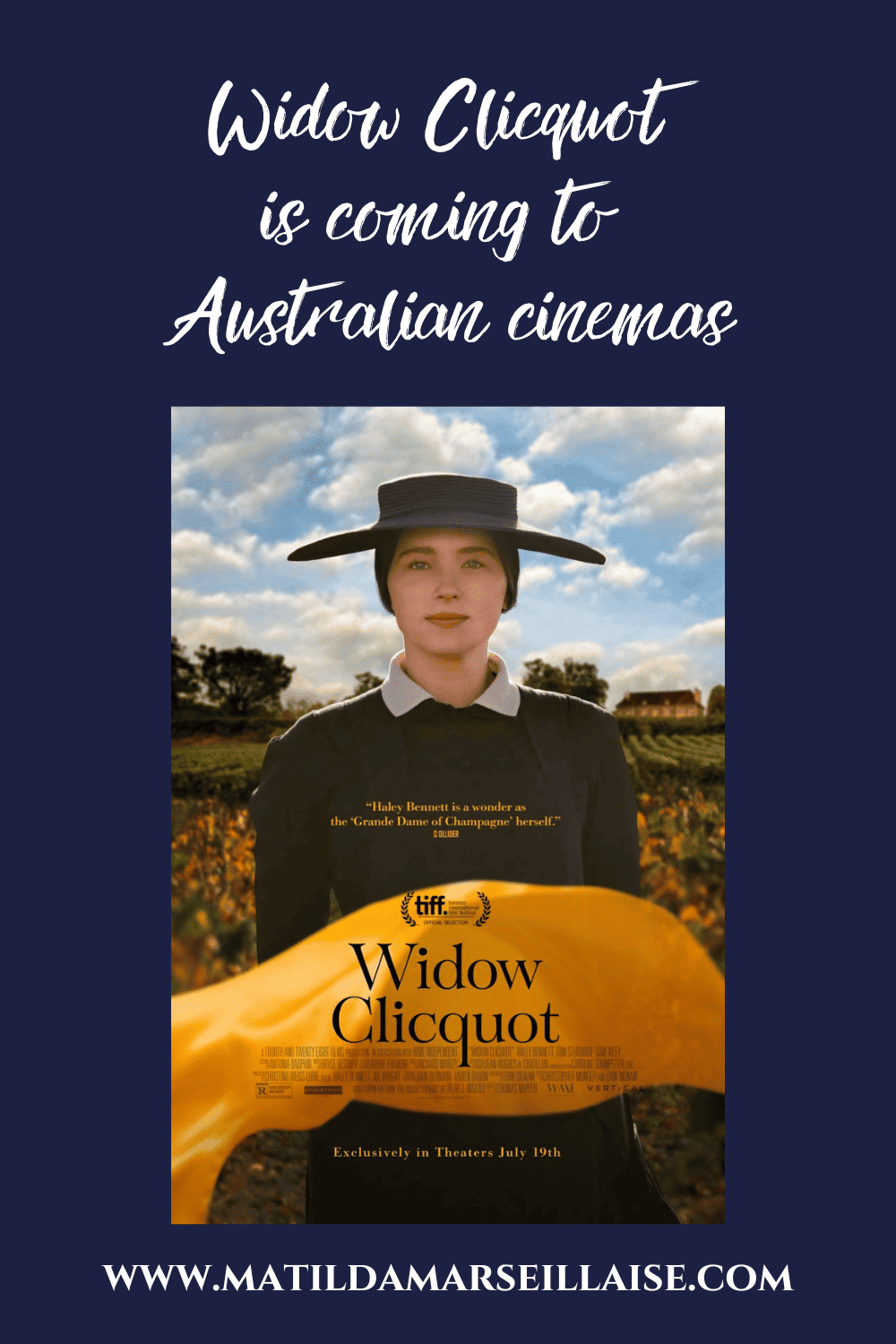San Salvador is a musical collective from the village of San Salvadour in France, that sing in the Occitan language. They are coming to Australia for WOMADelaide. We chat with Thibault Chaumeil, one of the singers of the collective.

Thibault, you’re one of the singers of the collective San Salvador and you also play the Tom Bass?
Yes, exactly. That’s right. We are six singers and percussionists. And I play the Tom Bass.
What can WOMADelaide audiences expect from San Salvador’s two concerts?
WOMADelaide audiences can expect can expect an energetic, powerful performance, where they will hear six voices, three of which are female, three male, but which together produce a kind of even more powerful entity with percussion that gives a rather powerful rhythm and very, very long songs in which one can enter more or less into a trance.
From what I’ve heard of your album I understand that. I can imagine that live. How did you meet? I think most of you are friends – there are siblings, of course – but you have been friends since childhood?
Yes, that’s exactly it. We’ve known each other since we were kids because our parents were friends and indeed, there are brothers and sisters in the group. In fact, from a very young age, we started to sing together, to learn traditional songs from home. And then we grew up, we started to form music groups when we were teenagers, when we were in high school. And then at some point, about ten years ago, we decided to start this band and make it our business.
Do you have musical backgrounds or is it really just the love of music?
For some people yes, there are musical backgrounds, but no, I would say that it’s mostly the love of music that made this group.
So you are presenting a concert of Occitan music. Why did you choose this music as a genre and what do you like about it?
So in fact, I wouldn’t say that it’s Occitan music, well, you could still say that, but it’s just that we sing in the Occitan language. We sing in Occitan because Occitan is spoken, or has been spoken, in the whole of the southern half of France, a little in the north of Italy, a little in the north of Spain. So we live at the northern limit of where this language was spoken. And so naturally, when we started to learn traditional songs from our region, naturally, most of them were in Occitan.
And then we decided to keep this language because it allows us to bridge the gap between fairly ancient times, sometimes a century, sometimes two centuries. And it allows us to switch back and forth between what we would like to say today about today’s world.
Do you speak occitan fluently?
We don’t really speak it, we sing it especially.
So the region where you are now used to speak Occitan. But do you have Occitan roots? But how did you actually learn it?
No, we learnt it in the songs, but objectively, where we live, Occitan is not spoken very much. Because at one time, for our grandparents’ generation, the State decreed that the country’s language had to be unified and that everyone had to speak French. So effectively, at one point, they were made angry if they spoke Occitan. So in our country, that’s the way it’s always been. In our house, it’s an intimate way of speaking. The old people speak it to each other, the young people don’t speak so much. On the other hand, a little further south in France, you could say towards Toulouse or Marseille, where there are many more schools in Occitan, there are many more universities in Occitan and people who speak Occitan.
Ah that’s good because I was afraid it was a dying language. I didn’t even know if they taught Occitan either.
It is a language that lives, that still lives quite strongly.
So if you say that you learn Occitan through what are the lyrics of the songs, that means that the lyrics are the old lyrics.
Yes, absolutely yes.
So you don’t write the lyrics yourself, it’s the lyrics of the songs of the past.
That’s right for all the songs that we’ll be singing at these WOMADelaide concerts. In fact, all the songs are based on traditional texts of songs that existed a century or two ago. But on the other hand, we decided to invent all the music with lyrics.
So there’s the energy and the trance part of your music, but what are your songs about? As you’re in front of an audience like in Australia where they don’t talk occitan.
You should know that it’s the same in France. When we play in Paris for example, people don’t understand at all what we are singing about. So before we sing a song, we just give a little background as you might say. But then, we made sure that our music reveals the text, and often the music, as it is a language in itself, it often allows us to tell more things than are said in the song. You can give an atmosphere, you can tell the subtext, you can make people talk, but also really give an atmosphere and expand on something that is said in two words in the song. And so I think the music, if you just don’t expect to understand the lyrics, speaks for itself.
According to your website, you are “modern Occitan troubadours at large in the world”. But how do you compare to occitan troubadours of the past? And how many months of the year are you on tour?
We can use the term troubadour in the sense that we are often on the road. To compose our music for today, we collect traditional material, traditional and popular songs, just like the troubadours did. They went from place to place, collecting songs and bringing them back to the world. And so, we can say that we have the same function, the same desire to collect songs from home, but which speak to us of today’s world. And this year, we are touring a lot, I would say nine months out of twelve.
 Your first album La Grande Folie received the prize for Best Album – World Music at the Victoires de la Musique. So firstly, congratulations! But how much pressure does that put on you for your second album?
Your first album La Grande Folie received the prize for Best Album – World Music at the Victoires de la Musique. So firstly, congratulations! But how much pressure does that put on you for your second album?
It puts a lot of pressure on us because we want to go much further. We won’t be satisfied if we do the same quality or less. We have to explore a bit further, we have to explore more deeply and yes, we have to come out with something even bigger.
In fact, I would say that it’s not necessarily this award that gives us this pressure, but it’s rather how these songs have been reacted to by the public wherever we sing them, wherever they are received. We have the advantage of walking in front of an audience of all ages, in front of all types of sitting rooms or standing festivals and we always sing the same songs and that’s what’s quite extraordinary. And we would like to go even further, but with the second album.
Where do you actually find these songs? Is there a book full of all the songs in Occitan or is it difficult to find them?
So for the songs that are on this album La grande folie, they are all except one from the place where we actually live. And so these songs have been passed on orally over the years, over the centuries. So at some point, they were collected. That is to say, they were either written down in collections, or recorded. And now, on the internet, anyone can go and consult recordings of people singing their songs.
So obviously, the music is not at all the same and obviously from one singer to another, there were some differences, sometimes differences in lyrics. And sometimes you realise that in several places in France, you find the same songs a little bit different, but you realise that they have travelled, that they have been passed on, handed down. But in fact, they can be found online – there is a great deal of work that has been done to digitise the tapes – of people who sang these songs. And there are books that have been published like this.
So it’s not difficult to find some. So for your next albums, there are a lot of songs you can choose from.
Yes. So for our next album, we don’t know yet, but we might go a little bit different way. But I don’t know if I can say more now. But maybe we’ll try to blur the lines. We’d like the songs we sing on the next album to be even more in line with what we want to say about the world today.
What is it that you want to say about the world today?
There are many things! There are eminently political things about – because for example, in the songs we sing, there are already power relationships between characters, sometimes almost domination relationships. There are songs that deal with the relationship between men and women. There is a song about war, there are songs about how to be together and in fact, we want to talk about all that, we want to make a statement about the world today and maybe put these power relationships to music.
Why should people come to see you at WOMADelaide?
People can come just to find a lot of energy. To be able to feel that energy and share it.
When did you decide to make music your full-time profession?
For me, it was at the exit of the high school hall, I would say. In fact, since we were children, we’ve been making music and all our teenage years we’ve continued to do so and I don’t feel that we chose it. It came naturally. That is to say that while we were in high school and studying, we were already giving concerts. We were already doing concerts on weekends and it’s just that when we stopped school, we continued to do them and we organised ourselves to do even more. I think it was a continuity.
Are the parents of the group members musical?
Some of them are, some of them have been professionally and some of them are amateurs.
I was wondering if the love of music was passed on by the parents perhaps.
Yes, I think that played a role, but since they all had this culture of traditional and popular music. So I think that yes, there was a certain passage that took place, yes.
I think I had read that Gabriel’s father had an interest in Occitan music and he moved to this region for that?
Indeed, he was from Lyon. It was the time of the folk revival. Everybody was doing folk music. In the 60s and 70s, it was the fashionable music and in fact, he and a few others, at the same time, realised that there was a kind of richness emanating from the rural territories and a musical richness, a richness of songs, traditions, They realised that there was in fact a kind of richness emanating from the rural areas and a musical richness, a richness of songs, traditions, and violin instruments that was really specific to these areas, to these people, and that in fact they – he and a few friends – set about recording these people – these people who were not doing this professionally at all, who sang, who in some cases had made their own violins, but who were simply country people. They realised, as they went from village to village, that there were people everywhere who sang, and who in fact had a rather incredible tradition.
When we were little, Gabriel’s father ran workshops for children and so we were part of these workshops, in which we learned these songs. We sang them, we danced, we invented.
—
We thank Thibault Chaumeil for this interview and we can’t wait to see San Salvador in concert at WOMADelaide
KEY INFO FOR SAN SALVADOR AT WOMADELAIDE 2023
WHAT: The group San Salvador in concert at WOMADelaide 2023
WHEN: San Salvador will perform on the following days and times:
- Saturday 11 March, 5pm
- Sunday 12 March, 5:30pm
And they will be in a workshop on Monday 13 March at 3pm – the subject has not yet been announced
WHERE: Botanic Park, Adelaide
HOW: Buy your tickets via this link: https://www.womadelaide.com.au/tickets
HOW MUCH: Tickets for the Saturday are now sold out. However, single day tickets for Friday, Sunday and Monday are still available for the following prices:
Friday
- Adult $166
- Concession $148
- Youth (13 to 17 years) $103
- Children (under 12 accompanied by an adult) Free
Sunday
- Adult $225
- Concession $198
- Youth (13 to 17 ) $137
- Children (under 12 accompanied by an adult) Free
Monday
- Adult $225
- Concession $198
- Youth (13 to 17 ) $137
- Children (under 12 accompanied by an adult) Free
LISTEN: You can listen to San Salvador on Spotify while you await their WOMADelaide performances here: https://open.spotify.com/artist/7scEcqhNpJPeO8RNSuj4nc?si=nHEQSVWFRAuS_lxv2HJh2w
—
Do you know San Salvador?

MORE WOMADELAIDE 2023 CONTENT
Madeleine Peyroux brings her Careless Love Forever tour to Australia
French-Moroccan group Bab L Bluz comes to Australia for the first time





